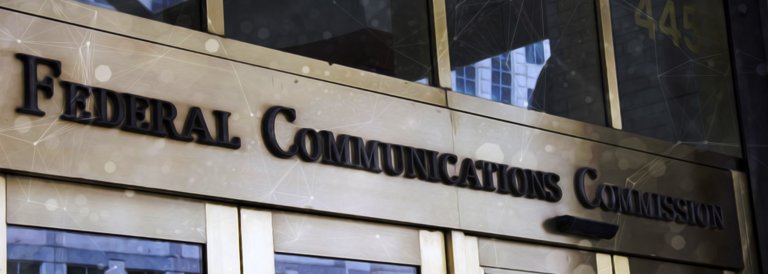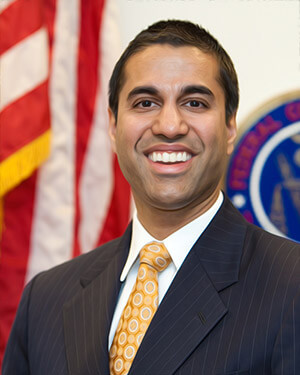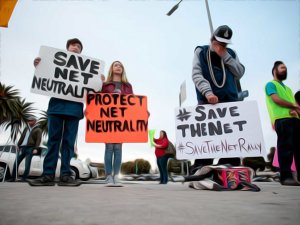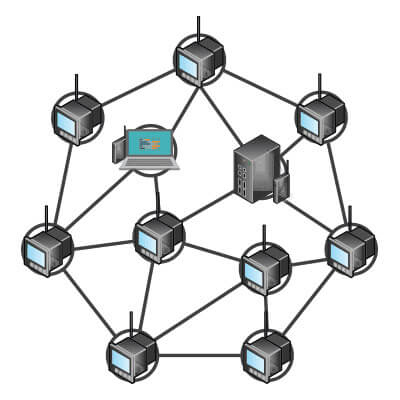 Crypto Will Fight Back Against The Loss of Net Neutrality
Crypto Will Fight Back Against The Loss of Net Neutrality Crypto Will Fight Back Against The Loss of Net Neutrality

Cover art/illustration via CryptoSlate. Image includes combined content which may include AI-generated content.
“The potential for the abuse of power through digital networks – upon which we the people now depend for nearly everything, including our politics – is one of the most insidious threats to democracy in the Internet age.”
Rebecca MacKinnon

This is not what we signed up for, many would say. Others again, suggest that it’s merely a storm in a teacup; it will blow over soon enough, or it might actually be a good thing for the Internet, is their opinion.
But, whether you like it or not, the legislation which protects net neutrality has been repealed in the US by The Federal Communications Commission (FCC).
While opponents’ battle axes are drawn and the wheels of legislation kick into motion –the repeal could take months to come into effect or even get annulled – we were curious to see what it’s all about. And, of course, how the move of the FCC might affect our beloved crypto. Please continue reading to see what we found.
Hindsight is 20/20
This story really begins a decade or two ago. Remember how – during the dot-com boom at the turn of the century – we all scrambled to migrate online? How we couldn’t wait to unshackle ourselves from the limitations of a bricks-and-mortar-only existence? And, how the visions of our business-prospects getting carried across international waters on the global wings of the World Wide Web, put dollar-signs in our eyes?
Yes, those were exciting times, indeed. And, today, the fundamentals still remain firmly intact. But, little did we know – or really cared – what might lie beneath the waters. Has it come back to bite us?
Come to think of it, we’ve put ourselves in a vulnerable position. By depending wholesale on the Internet for both, our commercial and other activities, we have become increasingly reliant on the whims of connectivity suppliers, aka the major cable companies and Internet Service Providers (ISPs).

Let’s face it, if left unchecked, the “custodians” of the information super-highway can make or break us; if they get to decide what we can or cannot do on the Web, also at what price.
And, no, mankind has not been caught napping; lobbyists for net neutrality – which essentially requires that all Internet data be treated equally and billed the same – have already won landmark rulings in past years.
For instance, during June 2016, the U.S. Court of Appeals for Washington, D.C. ordered that Internet connectivity be treated the same as basic utilities –such as water, electricity, public transport and so on- effectively meaning that providers may not discriminate in any way against consumers.
But, the major telcos wouldn’t have any of it and promised they’ll be back; which, of course, they did successfully. So, here we are – since Thursday, the internet connectivity supply chain has regained carte blanche in its activities.
What does this mean?
At the really dark side of the spectrum, major telco corporations can now make you pay exorbitant prices to transfer, view or share data that doesn’t suit them; or, even allow you to do so, entirely free of charge, if the particular information supports their own objectives.

Of course, such activity would fly directly in the face of the United Nations (UN) – who have declared fair Internet access to be a basic human right- but as far as big business goes, never say never.
As an example, let’s say, a large ISP launches a cryptocurrency of its own and the stakeholders want –for obvious reasons- the value to skyrocket on the open exchanges. What stops them from subtly guiding and prompting crowds towards their own coin or token on the Net, away from direct competitors? Nothing.
In fact, they might be able to do so quite easily. Through selective pricing and exclusion zones, it’s not too difficult for telcos and ISPs to control where “the herd” goes on the Web.
However, thankfully, it might not all be doom and gloom. Free-market mechanisms still rule the economy and when consumers get tired of the shenanigans from opportunistic telco providers, they would – generally speaking – migrate to suppliers better suited to their needs.
And, thanks to history, there will likely be “honest-Joe” corporations waiting with open arms; in this case, to leverage net neutrality as a competitive advantage. In an unintended way, this might actually benefit the Internet too, as – with a major and constant influx of new customers – these ISPs may actually have an incentive to drop Internet subscription prices over the longer term.
But, regardless of how it may turn out eventually, the crypto community is not keen to stand by idly, merely hoping for the best. After all, in the world of digital currencies, one cannot afford to be held at ransom in any way by the suppliers of your electronic backbone.
One Possible Solution – Mesh Networks
Karl Floersch, an Ethereum developer and Casper researcher said recently:
“If we get some crazy net neutrality regulation, then they can expect a crazy mesh-network fire-back.”
He is indeed referring to a system where many Internet users can surf the Web without the need for a traditional internet service provider.

Mesh networks allow participants to piggyback off the same signal. A popular example is the NYC Mesh network; where, at least 70 different locations in the East Village of New York City, share Internet access to the same websites.
Although the mesh-concept of interconnectivity has been around for a long time – since the 1990s in fact- the idea of rolling it out around the globe on a blockchain is new; and, this is what Floersch and many other crypto-evangelists are focusing on right now, as we speak.
He says that, with an Ethereum-based system running in the background, any mobile device could theoretically be turned into a Wi-Fi enabled node. And, with interconnected smart contracts and a crypto token – maybe something like a “meshcoin”, Floersch says- there is incentive for the network to spread worldwide.
Well, to Karl and all the other crypto techies, we love your thinking! Although we’d best leave the high-tech side the opportunity in your capable hands, the idea of disrupting an industry, which might threaten mankind’s basic right to net neutrality, is extremely appealing. We salute you for that initiative and will continue to watch this space in eager anticipation.




















































